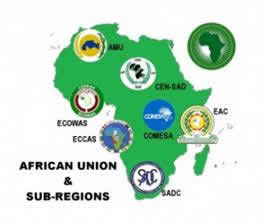
OPINION: When it is without technology, innovation, creativity & knowledge, forget it!
by Abimbola Adelakun
To President Muhammadu Buhari’s ardent followers, certain spectacles are heartwarming emblems of his simplicity, but, they are in fact, bad PR.
The image of the President of Nigeria watching a 32-inch TV, for instance, should be nobody’s idea of austereness neither should it deserve the fuss it attracted.
The same can be said of his farm pictures which have surfaced for the second time in two years.
In 2015, the pictures of Buhari visiting his farm shortly after becoming President should have been an alarm. There was little about that farm that spelled technological innovation, entrepreneurial creativity, or any perspicacity that suggested he had what it would take to stimulate national development.
When the pictures resurfaced in 2017, very little had changed. The man still keeps cows the same way our grandparents kept domestic animal farming.
Even more unsettling is the fact that we live in a globally connected world where other world leaders intuit our leaders and our collective mental development from the way we narrate ourselves.
Buhari shared the picture before leaving for the One Planet Summit in France. He would have preempted his own arrival in Europe with a confirmation that the largest conglomeration of Black people in the world is stuck in a time warp.
Where does one even start?
In 2017, Buhari hopes the picture of himself growing fruits and vegetables, and practising animal husbandry at a level that barely transcends subsistence farming, has any discernible potential to solve the nation’s food crisis?
The man has lived through similar specious programmes like “Green Revolution,” “Operation Feed the Nation,” and “National School Agriculture Programme,” yet his grand vision for Nigeria is still non-industrialised agriculture?
Even the Imo State Governor, Rochas Okorocha, reduced official work days from five to three so that people could take up farming. If, with all those efforts, Nigerians are still unable to feed themselves, it could only mean that previous solutions were cosmetic and the fundamentals of farming problems in Nigeria still need addressing.
What is the point of Buhari’s advocating more people to take up farming when we have problems of land tenure system, desertification, storage facilities, manufacturing, electricity, poor road access to urban markets where the produce would find a market, and perennial food wastage?
The issue of food wastage in Nigeria was raised by the Agriculture Minister, Audu Ogbeh, last year when he observed that 30-40 per cent of our farm produce end up wasted.
Our problems are not food production in itself; it is that failure to create structures that can distribute what we have sufficiently. Nigeria does not need to be an agrarian economy where we will hang a hoe on our shoulders, and “go back to land” to survive.
What we need is knowledge and the political will to execute smart ideas. It is thanks to such cultivated knowledge that a state like California, partly situated in the desert, can be the food basket of the USA.
The state earns an average annual income of $50bn on farming alone, and that is about twice the entire budget of Nigeria with all her oil revenue. Yet, less than three per cent of their citizens are involved in farming.
How do they do it?
Technology, innovation, and creativity.
When the yams Nigeria sent to Europe sometime this year with so much fanfare were returned as not up to par, our cultural deficiencies were immediately obvious. What the world wants to buy is between our ears, not in the ground.
Developed economies of the world have so industrialised that machines have replaced the humans who used to work on slave plantations. People who travel through Libya to Europe arrive there (for those who do anyway) to find that the jobs available for Black labourers are mostly sex-based.
With smaller land mass and population than Nigeria, countries like The Netherlands, Italy, and Germany make far more money on food exports than Nigeria makes on oil. They apply creative solutions for maximum productivity.
Today, developed countries have a lot of time for leisure and can concentrate their intellect on the less rudimentary issues such as development in areas of health, environment, climate change, human rights, and the elevation of the human soul through cultural productions.
That is the standard Nigerian leaders should be nudging people towards, not further prod the land to yield food when we have not demonstrated enough sagacity to handle what we already get.
There are problems with our leaders brandishing an unreconstructed mind, living 19th-century realities in the 21st century. Their anachronism, and the archaic ideas they deploy explain why our problems seem extremely complicated.
From building roads that last to planning budgets that are not fraught with statistical failures, we recycle pretty much the same issues annually.
In 2017, we have a President preaching subsistence farming thus confirming that his approach to complex issues is oversimplified solutions that have no viability in present times.
In case the Presidency forgets, the rest of the world follows what happens in our country and assesses our capacity to resolve our issues through our leaders and the way they reason.
The images of our President canvassing subsistence agriculture are, in that wise, a poor commentary on our collective intelligence and our capability to solve problems.
I understand Buhari has to appeal to his followers who get easily titillated by his supposed earthiness but they should be mindful that we also live in an interconnected world where local idiocies have global implications.
Our country builds universities like pure water factories and yet we act naïve; practically asking the world infantilise us.
Credit to Abimbola Adelakun
